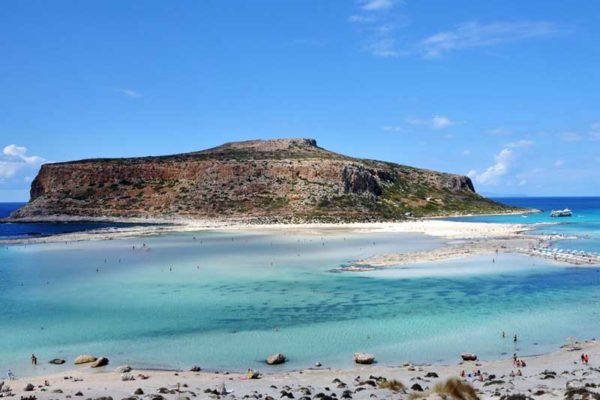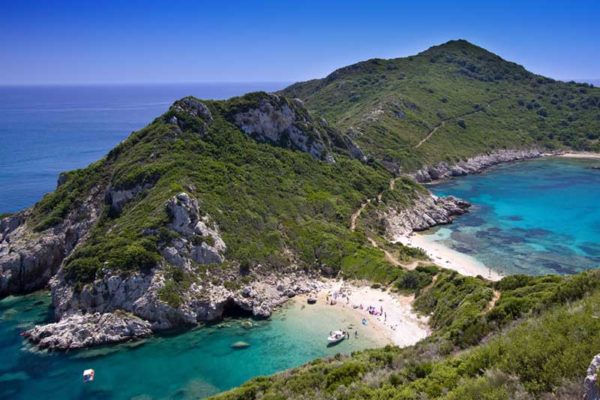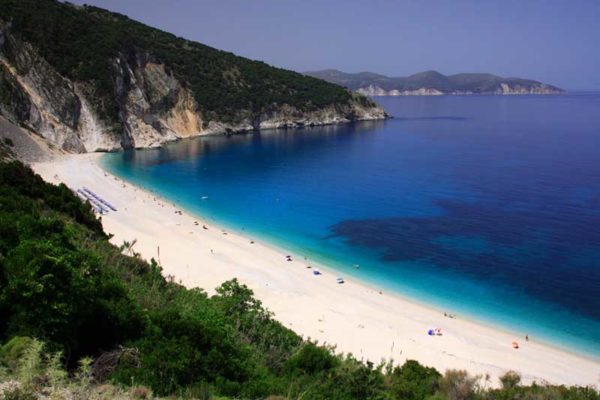
Greece Is A Leading Location Among Honeymoon And Wedding Destinations.
Today’s visitors to Greece have the opportunity to trace the “fingerprints” of Greek history from the Paleolithic Era to the Roman Period in the hundreds of archaeological sites as well as in the archaeological museums and collections that are scattered throughout the country.
Greece is located in south-eastern Europe, on the southern end of the Balkan Peninsula (Haemus peninsula); it lies at the meeting point of three continents – Europe, Asia, and Africa. Greece borders to the North on Bulgaria and the Former Yugoslav Republic of Macedonia (F.Y.R.O.M.), to the Northwest on Albania, to the Northeast on Turkey; to the West it is washed by the Ionian Sea; to the South by the Mediterranean Sea and to the East by the Aegean Sea. The total area of Greece is 131,957 km2 and consists of three main geographic areas: a peninsular mainland (that extends from the region of Central Greece on the South to the region of Thrace on the North) being the biggest geographic feature of the country the Peloponnese peninsula that is separated from the mainland by the canal of the Corinth Isthmus, and around 6.000 islands and islets, scattered in the Aegean and Ionian Sea, most of them grouped in clusters, that constitute the unique Greek archipelago. Crete, Rhodes, Corfu, the Dodecanese and the Cyclades are some of the most famous and popular islands and island clusters in Greece. Eighty percent of the country consists of mountains or hills, making Greece one of the most mountainous countries of Europe; furthermore, it has 16.000 kilometres of coastline of which 7.500 are found around the thousands islands of the Greek archipelago, a truly unparalleled phenomenon on the European continent.
Greece has a Mediterranean climate with plenty of sunshine, mild temperatures, and a limited amount of rainfall. Due to the country’s geographical position, its rugged relief, and its distribution between the mainland and the sea, there is great variation in Greece’s climate. In summer, the dry hot days are cooled by seasonal winds while mountainous regions have generally lower temperatures. The winters are mild in lowland areas with a minimum amount of snow and ice, but the mountains are usually snow-covered. Moreover, a common phenomenon is the occurrence of different climatic conditions during the same season (for instance, mild heat in coastal areas and cool temperatures in mountainous regions).
The varied experiences and beautiful landscape make Greece a great destination for weddings abroad. On Crete alone, there are beautiful venues like chapels, rural farm estates, and plenty of beaches. The expert wedding planners at Absolute Wedsite would love the opportunity to plan our clients’ weddings in Greece!
Note that currency exchange rates are clearly displayed in every bank that accepts currency exchange, while credit card holders may acquire money from the ATMs of the collaborating banks. Greek banks are open for the public from 8:00 to 14:30 Mondays to Thursdays and from 8:00 to 13:30 on Fridays. They are closed on public holidays.
Additional Information
Local Language
The official language of Greece is Greek, although many tourists areas are popular with English.
Money!
The currency in Greece is the Euro
Getting Married?
Couples planning a wedding will need Photo ID, birth certificates and proof of citizenship. Note that your Greek wedding must also be published in a local newspaper at least 8 days prior to your ceremony. For further details please speak to one of our wedding specialists!
Entry/Exit Requirements
It is the sole prerogative of each country or region to determine who is allowed to enter. The following information on entry and exit requirements has been obtained from the Dutch authorities. However, these requirements are subject to change at any time. It is your responsibility to check with the Greek Embassy and its consulates for up-to-date information.
Passport
Canadians must present a passport to visit the Greece, which must be valid for at least three months beyond the date of expected departure from that country. Before you leave, ask your transportation company about its requirements related to passport validity, which may be more stringent than the country’s entry rules.
Permanent residents of Canada must travel with their Permanent Resident Card and a valid passport from their country of origin.
Children and Travel
Children need special documentation to visit certain countries. Please consult our specialists for further details.








